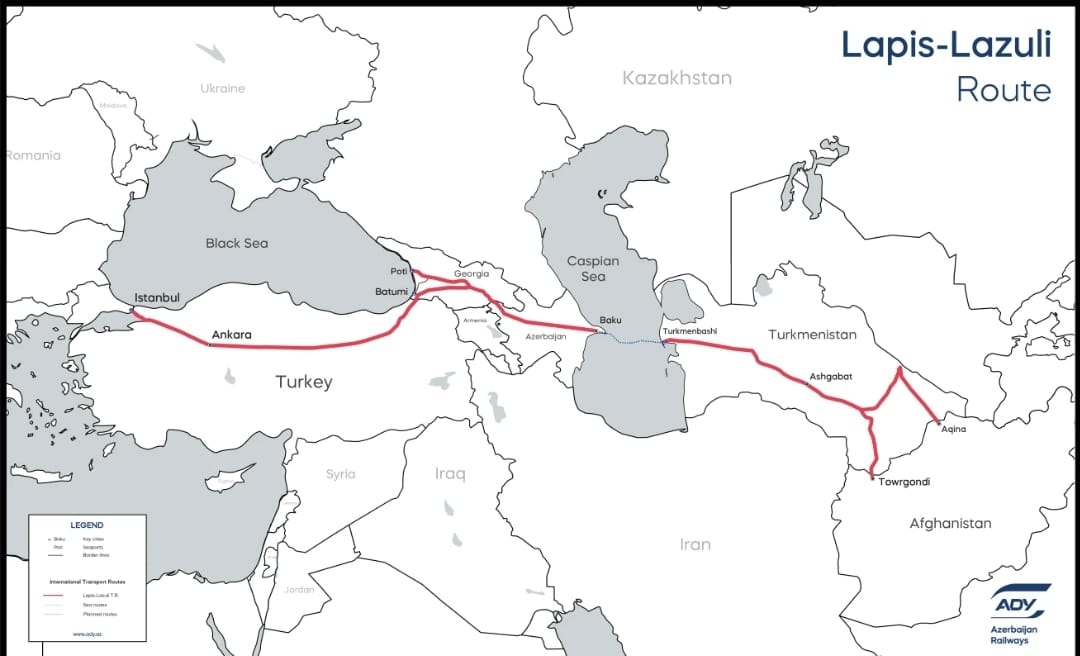BAKU, Azerbaijan, September 6. The Lapis Lazuli Corridor holds significant importance for Azerbaijan and it is set to unlock country’s transit potential, economist & expert Eldaniz Amirov told Trend.
Amirov highlighted that Azerbaijan has developed a robust transport infrastructure, which only continues to expand.
"Since we already manage exports from Kazakhstan, China, and other areas, why not make it easier to convey cargo from Afghanistan through Azerbaijan? Azerbaijan is obviously interested in collaborating with Afghanistan and Turkmenistan in this regard," Amirov stated.
He explained that the concept of a transit and transport system in this corridor emerged in 2012.
“However, the idea could not be put into practice right away
because to regional obstacles like security concerns, unstable
economies in Central Asia, and inadequate infrastructure. In 2016,
four working group sessions were conducted, and at the fourth
technical meeting in Baku, a draft agreement was created. 2017 saw
the official signing of the framework agreement in Ashgabat during
the 7th Regional Conference on Economic Cooperation.
The corridor in Afghanistan's Herat Province was formally opened on
December 13, 2018. The Lapis Lazuli Corridor roadmap was renewed at
a video conference between Azerbaijan, Turkmenistan, and
Afghanistan in 2021. A pandemic-related online meeting was held in
2020,” Amirov noted.
Transport expert Rauf Aghamirzayev emphasized that the Lapis Lazuli Corridor provides a vital link for Afghanistan and Central Asian countries to access European and global markets.
"This route is as crucial as other routes passing through Azerbaijan. It will enhance Azerbaijan’s transit potential. The significance of multimodal transport in the Caspian region is growing, and the Southern Caucasus offers a short access route for landlocked countries. The key takeaway is that the efforts made previously are yielding positive results," he added.







